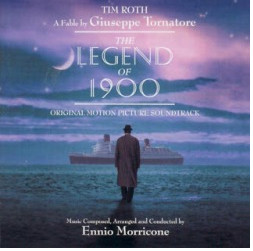主页--->m-comment-000--->mb-comment-012-108
|
电脑版 |
|||||||||||||||||||||||||||||||||||||||||||||||||||||||||||||||||||||||||||||||||||||||||||||||||||||||||||||||||||||||||
布罗克斯顿评说莫里康内 MB-012-108 |
||||||||||||||||||||||||||||||||||||||||||||||||||||||||||||||||||||||||||||||||||||||||||||||||||||||||||||||||||||||||||
THE LEGEND OF 1900 – Ennio Morricone |
||||||||||||||||||||||||||||||||||||||||||||||||||||||||||||||||||||||||||||||||||||||||||||||||||||||||||||||||||||||||||
FA9804 THE LEGEND OF 1900 / 海上钢琴师 |
||||||||||||||||||||||||||||||||||||||||||||||||||||||||||||||||||||||||||||||||||||||||||||||||||||||||||||||||||||||||||
作者 乔纳森·布罗克斯顿 (Jonathan Broxton) |
||||||||||||||||||||||||||||||||||||||||||||||||||||||||||||||||||||||||||||||||||||||||||||||||||||||||||||||||||||||||||
ENNIO MORRICONE 评论,第12部分 012-108 |
||||||||||||||||||||||||||||||||||||||||||||||||||||||||||||||||||||||||||||||||||||||||||||||||||||||||||||||||||||||||||
 |
||||||||||||||||||||||||||||||||||||||||||||||||||||||||||||||||||||||||||||||||||||||||||||||||||||||||||||||||||||||||||
1900年的传奇——埃尼奥·莫里康内1999年10月29日
乔纳森·布罗克斯顿(Jonathan Broxton)的原始评论 迄今为止,埃尼奥·莫里康内(Ennio Morricone)的配乐《1900年的传奇》(The Legend of the 1900)的好评如潮。引用詹姆斯·索索尔(James Southall)在Movie Wave上发表的最高级评论,“偶尔会有天才之手的配乐; 太好了,它让你感到很荣幸能听它,太好了,它让你为与作曲家同时活着而感到自豪。此时此刻,我想向全世界所有同样尊重配乐的电影配乐迷道歉,因为现在,为了继续航海的比拟,我要摇摆不定。 导演朱塞佩·托纳托雷和莫里康内过去曾成功合作过一些优秀的电影,最近一次是奥斯卡获奖的《天堂电影院》和奥斯卡提名的《新天堂星探》。他们的最新作品《The Legend 1900》(The Legend of the Pianist on the Ocean/La Leggenda del Pianista sull'Oceano)是一部由蒂姆·罗斯(Tim Roth)主演的英语故事片,讲述了一个男人一生都在世纪之交的邮轮上演奏音乐的惊人人生故事。这部电影一年多前在意大利上映,不久将在世界其他地区上映,但放映时间大大缩短。可以想象,莫里康内的音乐在电影中扮演着重要角色,他的几首作品由罗斯的同名钢琴家在银幕上演奏。 首先,我要说的是,莫里康内的主题曲,正如在8分钟的主打歌“海上钢琴师的传奇”中听到的那样,完全令人惊叹。从有点笨拙的钢琴和萨克斯二重奏开始,主题逐渐增加音量和大小,直到 3 分 52 秒,弦乐部分华丽地膨胀到莫里康内写过的最美丽的主题之一的第一次主要表演。在主题再次出现的地方,在“Child”和“Ships and Snow”等曲目中,配乐无疑被提升到更高的高度。 还有一些可爱的个人曲目,具有突出的器乐和表演独奏,尤其是柔和而雄辩的萨克斯管主导的开场“Playing Love”,前面提到的“Child”中优美的长笛独奏(有时让我想起“萨拉修女的两头骡子”),安静动人的“The Goodbye Between Nineteen Hundred and Max”,以及准古典钢琴曲“Study For Three Hands”, 《三等舱的塔兰泰拉》、《持久的运动》和《莫扎特的转世》。 然而,在专辑的其余部分,我发现配乐不那么讨人喜欢,主要是因为莫里康内独特但顽固的非传统配器,以及他将两种完全不同的音乐风格结合成一个提示的相当令人讨厌的习惯。在“Trailer”、“Goodbye Duet”和两首“Nineteen Hundred's Madness”等曲目中,对立的爵士乐和古典音乐的影响并没有像预期的那样互补,而是发生了可怕的冲突,并导致了类似于你同时演奏两首音乐时可能拥有的聆听体验。就个人而言,这些元素很可爱,尤其是传统的管弦乐部分,但莫里康内通过不合时宜地引入詹尼·奥迪的爵士萨克斯管或吉尔达·布塔的拉格泰姆钢琴,完全破坏了它们的整体影响。 此外,莫里康内的一些提示似乎是故意构建的,看起来似乎未完成,我敢说,业余的,好像是由一个初出茅庐的钢琴家演奏的。举个例子,听听《危机》和《第二次危机》中的旋律——它们总是以错误的调子结束,似乎从来没有得出一个自然的结论,而只是飘向虚无。这种写作在极端情况下是令人沮丧的,虽然它在屏幕上可能很有意义,但对增强专辑的乐趣没有任何作用。在CD结束时,当罗杰·沃特斯(Roger Waters)的歌曲“Lost Boys Calling”开始时,我已经受够了。我不知道罗杰·沃特斯(Roger Waters)自从成为平克·弗洛伊德(Pink Floyd)的一员以来一直在做什么,在他在这里进行罗尔夫·哈里斯(Rolf Harris)式的颤音表演之后,我想我也不想这样做。 《1900 年传奇》的配乐有两个版本的光盘——这个原始版本在电影上映时由索尼在意大利发行,而新的美国版本则以新标题命名,有新的封面艺术,重新排列的曲目列表,而且要短得多。老实说,我建议选择较短的美国版本而不是这个版本,因为较短的运行时间可能会使最终结果更连贯,对耳朵的磨蚀更少。莫里康内作为电影作曲家的天才是毋庸置疑的,也永远不会受到质疑,他在这里的主题确实非常了不起——只是,在电影音乐和生活中,你可以拥有太多的好东西。 评级:*** 曲目列表:
片长:78分03秒 索尼古典 SK-60790 (1998) 音乐由埃尼奥·莫里康内(Ennio Morricone)作曲和指挥。由意大利音乐学院演出。埃尼奥·莫里康内(Ennio Morricone)的改编。Amadeo Tommasi 和 Jelly Roll Morton 的附加音乐。音乐独奏家 Gianni Oddi、Cicci Santucci、Fausto Anzelmo、Gilda Buttà 和 Amadeo Tommasi。由法比奥·文丘里(Fabio Venturi)录制和混音。专辑由埃尼奥·莫里康内(Ennio Morricone) |
||||||||||||||||||||||||||||||||||||||||||||||||||||||||||||||||||||||||||||||||||||||||||||||||||||||||||||||||||||||||||
1999.10.29 |
||||||||||||||||||||||||||||||||||||||||||||||||||||||||||||||||||||||||||||||||||||||||||||||||||||||||||||||||||||||||||
|
| ||||||||||||||||||||||||||||||||||||||||||||||||||||||||||||||||||||||||||||||||||||||||||||||||||||||||||||||||||||||||||
以下是原文
| ||||||||||||||||||||||||||||||||||||||||||||||||||||||||||||||||||||||||||||||||||||||||||||||||||||||||||||||||||||||||||
ENNIO MORRICONE REVIEWS, Part 12-108 |
||||||||||||||||||||||||||||||||||||||||||||||||||||||||||||||||||||||||||||||||||||||||||||||||||||||||||||||||||||||||||
THE LEGEND OF 1900 – Ennio MorriconeOctober 29, 1999
Original Review by Jonathan Broxton To date, the critical reception for Ennio Morricone’s score The Legend of the 1900 has been completely positive. To quote from James Southall’s superlative review at Movie Wave, “once in a while there comes a score blessed with the hand of genius; so good it makes you feel privileged to be listening to it, so good it makes you feel proud to just be alive at the same time as the composer.” At this moment I’d like to apologize to all the film score fans across the world who hold the score in that same high esteem because now, to continue with a seafaring analogy, I’m going to rock the boat. Director Giuseppe Tornatore and Morricone have successfully collaborated on some excellent films in the past, most recently on the Oscar-winning Cinema Paradiso and the Oscar-nominated The Starmaker. Their latest work together, The Legend 1900 (The Legend of the Pianist on the Ocean/La Leggenda del Pianista sull’Oceano) is an English-language feature starring Tim Roth, which tells the amazing life story of a man who spends his entire life playing music on board a turn-of-the-century cruise liner. The film opened in Italy over a year ago, and will be released shortly in the rest of the world – but with a much reduced running time. As one would imagine, Morricone’s music plays a major part in the film, with several of his compositions being performed on-screen by Roth’s eponymous pianist. Let me first of all say that Morricone’s main theme, as heard in the 8-minute title track ‘The Legend of the Pianist on the Ocean’, is completely stunning. Beginning with a somewhat ungainly piano and saxophone duet, the theme gradually builds in both volume and size until, at precisely 3:52, the string section swells magnificently into the first major performance of what surely is one of the most beautiful themes Morricone has ever written. Where the theme is present again, in tracks such as ‘Child’ and ‘Ships and Snow’, the score is undoubtedly lifted to a higher plateau. There are also some lovely individual tracks with prominent instrumental and performance solos, especially as the soft and eloquent saxophone-led opening ‘Playing Love’, the beautiful flute solo in the aforementioned ‘Child’ (which, at times, reminds me of Two Mules for Sister Sara), the quietly moving ‘The Goodbye Between Nineteen Hundred and Max’, and the quasi-classical pianoforte pieces ‘Study For Three Hands’, ‘Tarantella in 3rd Class’, ‘Enduring Movement’ and ‘A Mozart Reincarnated’. The rest of the album, however, I found the score to be rather less endearing, mainly because of Morricone’s distinctive, but stubbornly unconventional orchestrations, and the rather irritating habit he has of combining two completely different styles of music into one cue. Rather than being complementary, as was presumably the intention, the opposing jazz and classical influences in tracks such as ‘Trailer’, ‘Goodbye Duet’ and the two ‘Nineteen Hundred’s Madness’ cues clash terribly, and result in a listening experience similar to one you might have while playing two pieces of music at once. Individually, the elements are lovely, especially the traditional orchestral parts, but Morricone completely ruins their overall impact through the ill-timed introduction of Gianni Oddi’s jazz saxophone, or Gilda Buttà’s ragtime piano. In addition, some of Morricone’s cues seem to be deliberately structured to seem unfinished and, dare I say it, amateurish, as though performed by a fledgling pianist. As an example, listen to the melodies in ‘The Crisis’ and ‘Second Crisis’ – they constantly end on the wrong key, and never seem to come to a natural conclusion, instead just drifting away into nothingness. This kind of writing is frustrating in the extreme, and although it probably makes sense on-screen, does nothing to enhance the enjoyment of the album. By the end of the CD, when Roger Waters’ song “Lost Boys Calling” began, I had more than had enough. I don’t know what Roger Waters has been doing since he was part of Pink Floyd, and after his Rolf Harris-style warbling performance here, I don’t think I want to either. There are two versions of the score to The Legend of the 1900 available on CD – this original version, which was released by Sony in Italy at the time of the film’s opening, and the new American version, which goes by it’s new title, has new cover art, re-arranged track listings and is much shorter. To be quite honest, I would recommend picking up the shorter American version as opposed to this one, as the shorter running time may make the end result more coherent and less abrasive to the ear. Morricone’s genius as a film composer is not and will never be in question, and his main theme here is truly remarkable – it’s just that, in film music as in life, you can have too much of a good thing. Rating: *** Track Listing:
Running Time: 78 minutes 03 seconds Sony Classical SK-60790 (1998) Music composed and conducted by Ennio Morricone. Performed by Accademia Musicale Italiana. Orchestrations by Ennio Morricone. Additional music by Amadeo Tommasi and Jelly Roll Morton. Featured musical soloists Gianni Oddi, Cicci Santucci, Fausto Anzelmo, Gilda Buttà and Amadeo Tommasi. Recorded and mixed by Fabio Venturi. Album produced by Ennio Morricone. |
||||||||||||||||||||||||||||||||||||||||||||||||||||||||||||||||||||||||||||||||||||||||||||||||||||||||||||||||||||||||||
10. 29, 1999 |
||||||||||||||||||||||||||||||||||||||||||||||||||||||||||||||||||||||||||||||||||||||||||||||||||||||||||||||||||||||||||
在线音乐试听 |
||||||||||||||||||||||||||||||||||||||||||||||||||||||||||||||||||||||||||||||||||||||||||||||||||||||||||||||||||||||||||
|
||||||||||||||||||||||||||||||||||||||||||||||||||||||||||||||||||||||||||||||||||||||||||||||||||||||||||||||||||||||||||
 |
||||||||||||||||||||||||||||||||||||||||||||||||||||||||||||||||||||||||||||||||||||||||||||||||||||||||||||||||||||||||||
Jon 是一位电影音乐评论家和记者,自 1997 年以来一直担任全球最受欢迎的英语电影音乐网站之一 Movie Music UK 的编辑和首席评论员,并且是国际电影音乐评论家协会 (IFMCA) 的主席。在过去的 20多 年中,Jon 撰写了 3,000 多篇评论和文章,并进行了多次作曲家采访。在杂志刊物方面,乔恩曾为《电影配乐月刊》、《原声带杂志》和《电影音乐》等出版物撰写评论和文章,并为普罗米修斯唱片公司的两张经典 Basil Poledouris 配乐专辑《Amanda》和《Flyers / Fire on the Mountain》撰写了衬垫注释。他还为汤姆·胡佛 (Tom Hoover) 于 2011 年出版的《Soundtrack Nation: Interviews with Today's Top Professionals in Film, Videogame, and Television Scorering》一书撰写了一章。在1990年代后期,乔恩是伦敦皇家爱乐乐团的电影音乐顾问,并与他们合作拍摄了约翰·德布尼(John Debney)的音乐电影《相对价值》(Relative Values)和奥利弗·海斯(Oliver Heise)的音乐《佛陀的指环》(The Ring of the Buddha),以及与兰迪·纽曼(Randy Newman)合作的一系列音乐会。2012年,乔恩在波兰克拉科夫举行的第五届年度电影音乐节上担任“电影节学院”主席。他是作曲家和作词家协会的成员,该协会是作曲家、作词家和词曲作者从事电影、电视和多媒体工作的首要非营利组织。 |
||||||||||||||||||||||||||||||||||||||||||||||||||||||||||||||||||||||||||||||||||||||||||||||||||||||||||||||||||||||||||
2023.12.10 |
||||||||||||||||||||||||||||||||||||||||||||||||||||||||||||||||||||||||||||||||||||||||||||||||||||||||||||||||||||||||||
2023 手机版 |
||||||||||||||||||||||||||||||||||||||||||||||||||||||||||||||||||||||||||||||||||||||||||||||||||||||||||||||||||||||||||
|
||||||||||||||||||||||||||||||||||||||||||||||||||||||||||||||||||||||||||||||||||||||||||||||||||||||||||||||||||||||||||













